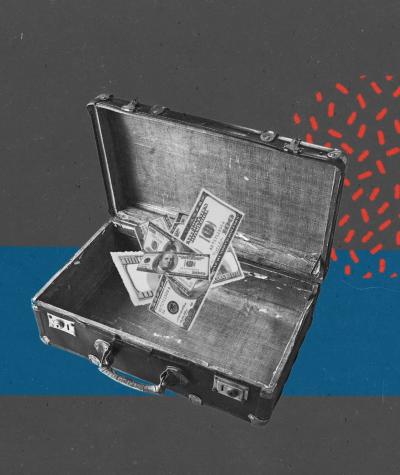StopSecretSpending.org, a product of Campaign Legal Center, is celebrating its 1st anniversary this summer.
Amid the 2020 election cycle, the site was launched to help keep voters better informed regarding transparency and the First Amendment, solutions to stop secret spending by wealthy special interests and new regulations needed to stop foreign spending on digital ads.
Unlimited, secret money from wealthy special interests prevents us from making progress on key issues like healthcare and a fairer tax system. We need real transparency about who is spending big money on elections to help working families.
Since July of 2020, Americans experienced the most expensive election cycle in history, with over $14.4 billion spent—with secret money, also known as “dark money,” accounting for over $1 billion of that sum.
Despite 83% of voters across partisan lines supporting transparency of political contributions to organizations that spend to influence voters, secret spending continues to rig our political system in favor of wealthy special interests.
To reduce political corruption, we need real transparency about who is spending big money on elections so that politicians can no longer receive unlimited, secret money from wealthy special interests to support their campaigns.
One of the most significant barriers toward stopping secret spending is a lack of action by the Federal Election Commission (FEC), the sole agency in charge of enforcing our campaign finance laws.
The failure of the FEC to enforce the law has only emboldened bad actors, resulting in an explosion in secret spending. Unfortunately, there is no other agency easily able to fill the void left by the FEC. As a result, our politics are increasingly rigged in favor of wealthy special interests.
Despite a lack of action by the FEC to regulate secret spending in federal campaigns,, states and municipalities have taken action to help protect the voices of Americans and:
-
In Alaska, voters passed Ballot Measure 2, which requires groups that spend money on election influence to disclose the true source of any contributions that exceed $2,000— giving voters access to information on the true sources of election spending and removing an avenue for “dark money” spending in the state.
-
In Oregon, the Secretary of State issued new, final regulations to ensure that all types of digital political ads comply with the state’s disclaimer law and deliver critical information to voters, and that disclaimers on digital ads are appropriately tailored to that medium.
-
For the 2020 election cycle, the District of Columbia launched the innovative Fair Elections Program—a system of public campaign financing intended to increase the power of small donors and decrease the impact of spending by dark money groups and super PACs.
Voters have a right to know who is trying to influence their vote, and who is working to influence our government. We need a stronger Federal Election Commission to enforce campaign finance laws and hold bad actors accountable.
Real transparency about who is spending big money on elections will mean more government accountability, less influence for wealthy special interests and less political corruption.
Visit StopSecretSpending.org to learn more.

